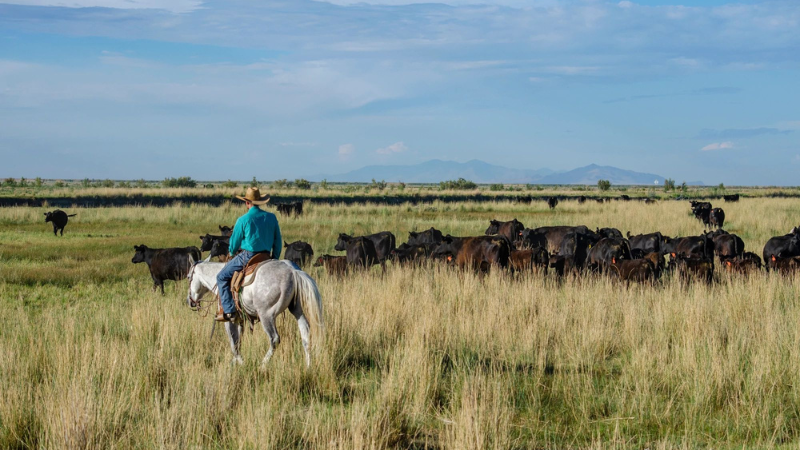The National Cattlemen’s Beef Association (NCBA) is requesting an immediate and indefinite halt to imports of beef from Brazil into the U.S. because of Brazil’s delays in reporting cases of a neurological disease affecting cattle.
The NCBA on Feb. 28 called upon U.S. Sec. of Agriculture Tom Vilsack to suspend the imports, citing a recent report that Brazil delayed for more than a month reporting a case of bovine spongiform encephalopathy (BSE), also known as "Mad Cow" disease, to the World Animal Organization for Animal Health (WOAH).
"That report indicated 35 days elapsed between when the case was first identified on Jan. 18, 2023, and the date it was confirmed on Feb. 22, 2023," the NCBA reports in the statement. "This represents an unacceptable delay that is in clear violation of WOAH reporting requirements. It is clear that Brazil is incapable of prompt testing and the reporting requirements that all nations must follow when engaging in international beef trade."
"Mad Cow" disease is a progressive neurological disorder that attacks the central nervous systems of cattle, according to the Centers for Disease Control and Prevention. The U.S. Food and Drug Administration reports that persons who consume beef products infected with BSE can contract variant Creutzfeldt-Jakob disease, a rare but fatal disease that kills brain cells.
“We have seen Brazil repeatedly fail to meet the 24-hour requirement for reporting of animal diseases listed by WOAH,” Todd Wilkinson, National Cattlemen’s Beef Association president and South Dakota cattleman, said in the statement. “In order to protect the safety and security of the U.S. herd and American cattle producers, we demand USDA take immediate steps to block further beef imports from Brazil.”
Wilkinson said USDA should close the border to Brazil until it shows it can “play by the trade rules that govern all other nations.”
“Secretary Vilsack needs to act now, rather than kicking the can down the road,” Wilkinson said in the statement.
In a Feb. 27 letter sent to Vilsack, the NCBA asked that the “USDA take immediate action to indefinitely suspend Brazil’s beef access to the U.S. market until USDA conducts a thorough review, including a risk assessment, of Brazil’s central competent authority – the Ministry of Agriculture, Livestock, and Food Supply (MAPA), as well as its veterinary diagnostic laboratory system.”
The association cited the WOAH requirement of reporting animal diseases within 24 hours of discovery and noted that Brazil has a pattern of delayed reporting.
“As you recall, NCBA raised concerns over Brazil’s two previous incidences of atypical BSE, one in Minas Gerais on June 11, 2021, and another in Mato Grosso on June 25, 2021,” the NCBA wrote in the letter. “Unfortunately, WOAH was not notified of Brazil’s two BSE cases until September 3, 2021 — several weeks after both cases were identified.”
A bipartisan Senate bill was reintroduced in February by Sens. Jon Tester (D-Mont.) and Mike Rounds (R-S.D.) which would suspend Brazilian beef imports until a thorough review is conducted.
“As a third-generation farmer, I know how hard Montana ranchers work to produce top quality beef that consumers can trust,” Tester said in the legislation announcement. “Folks shouldn’t have to worry about whether the products they buy at the grocery store are safe to eat, and that’s why we need to halt Brazilian beef imports until Brazilian producers can prove that their products meet our health and safety standards.”
NCBA's Wilkinson said that American cattlemen and women have long honored “laws governing international trade, promoting fair and equitable standards,” while countries such as Brazil ignore laws.
“Brazil cannot be allowed to benefit from the investments we have made to build a massive demand for beef around the globe,” Wilkinson said. “If trade partners like Brazil fail to follow the rules, there must be consequences, they must be painful and immediate.”









